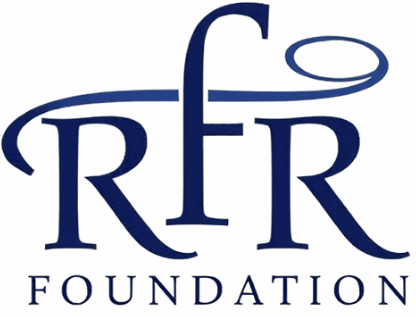Merit-based fully funded scholarships are one of the most sought-after opportunities for students aiming to pursue higher education without financial constraints. Unlike need-based scholarships that focus on financial status, merit-based scholarships reward students for exceptional academic performance, leadership skills, or outstanding achievements in extracurricular activities. In 2025, such scholarships are offered globally by universities, governments, and private organizations, allowing students to access world-class education while covering tuition, living expenses, and other costs. This article provides a comprehensive guide to merit-based fully funded scholarships, including eligibility, application strategies, benefits, and examples.
What Are Merit-Based Fully Funded Scholarships?
Merit-based scholarships are awards given to students based on their academic excellence, talent, or accomplishments. Fully funded scholarships cover:
- Tuition fees
- Accommodation and living expenses
- Health insurance
- Travel costs in some cases
- Research and study materials
These scholarships aim to attract high-performing students, encourage excellence, and reward talent across different fields.
Eligibility Criteria
While each scholarship may have specific requirements, the general eligibility criteria include:
- Academic Excellence: High GPA or outstanding performance in previous studies is typically required.
- Standardized Test Scores: Some programs consider SAT, GRE, GMAT, or other relevant test scores.
- Leadership and Extracurricular Activities: Participation in student organizations, sports, arts, or volunteering can enhance eligibility.
- Personal Statement or Essay: Many scholarships require a strong essay demonstrating motivation, career goals, and achievements.
- Recommendation Letters: Letters from teachers, professors, or mentors validating the applicant’s skills and accomplishments.
Merit-based scholarships are highly competitive; therefore, applicants must demonstrate not only academic excellence but also a well-rounded profile.
How to Apply for Merit-Based Fully Funded Scholarships
1. Research Available Scholarships
Start by identifying scholarships that match your field of study and level of education. Use:
- University websites
- Scholarship portals like Scholarship.com, Fastweb, and Chegg
- Government and international scholarship programs
2. Prepare Required Documents
Most applications require:
- Academic transcripts and certificates
- Curriculum Vitae (CV) or resume
- Statement of Purpose (SOP) or personal essay
- Letters of recommendation
- Identity documents and passport-sized photographs
Organize documents in advance to avoid last-minute stress.
3. Focus on a Strong Application
A compelling application can differentiate you from other high-performing candidates. Tips include:
- Tailor your SOP to each scholarship’s objectives
- Highlight leadership roles, achievements, and unique experiences
- Ensure documents are accurate, clear, and professionally formatted
4. Apply Through Official Channels
Submit applications via official scholarship or university portals. Avoid third-party websites that may charge unnecessary fees or provide unreliable information.
5. Prepare for Interviews
Some scholarships conduct interviews to assess leadership, motivation, and academic potential. Practice common questions and demonstrate confidence and clear communication.
Benefits of Merit-Based Fully Funded Scholarships
- Financial Support: Covers tuition, living costs, and other expenses.
- Global Exposure: Many scholarships allow study in leading international universities.
- Career Advancement: Scholarships enhance resumes and provide networking opportunities.
- Recognition: Merit-based awards highlight academic and professional excellence.
- Focus on Studies: Financial support allows students to focus on academics without worrying about expenses.
Popular Merit-Based Fully Funded Scholarships in 2025
Some renowned scholarships include:
- Rhodes Scholarship (UK): For postgraduate students with exceptional academic performance and leadership qualities.
- DAAD Scholarships (Germany): For international students pursuing postgraduate studies.
- Chevening Scholarship (UK): For future leaders with outstanding academic and professional records.
- Fulbright Program (USA): Offers opportunities for research, study, and teaching.
- Erasmus Mundus Scholarships (Europe): Covers tuition and living costs for international master’s programs.
- Gates Cambridge Scholarship (UK): For international students pursuing a postgraduate degree at the University of Cambridge.
Overview Table
| Scholarship / Program | Country / Region | Level of Study | Benefits | Eligibility Focus | Notes |
|---|---|---|---|---|---|
| Rhodes Scholarship | UK | Postgraduate | Tuition, living stipend, travel | Academic excellence, leadership | Highly competitive |
| DAAD Scholarships | Germany | Postgraduate | Tuition, living expenses, travel | Academic merit, research potential | Covers multiple programs |
| Chevening Scholarship | UK | Postgraduate | Tuition, living allowance, travel | Leadership, academics | Focus on future leaders |
| Fulbright Program | USA | Postgraduate/Research | Tuition, living costs, research funding | Merit, research proposals | Offers teaching and study opportunities |
| Erasmus Mundus Scholarships | Europe | Master’s | Tuition, living costs, travel | Academic excellence, international students | Covers multiple European universities |
| Gates Cambridge Scholarship | UK | Postgraduate | Tuition, living stipend, travel | Exceptional academic record | University of Cambridge only |
Tips to Maximize Chances of Selection
- Apply Early: Start applications at least a year in advance.
- Maintain a Strong Academic Record: GPA and standardized test scores matter.
- Showcase Leadership and Achievements: Highlight awards, projects, or volunteer work.
- Seek Quality Recommendations: Strong letters of recommendation can significantly boost your application.
- Prepare a Tailored SOP: Align your goals with the scholarship’s objectives and demonstrate motivation.
FAQs
1. Are merit-based scholarships only for top-ranked students?
Not always; while academic excellence is essential, leadership and extracurricular achievements are equally important.
2. Can international students apply for merit-based scholarships?
Yes, many programs like DAAD, Chevening, and Erasmus Mundus are open to international applicants.
3. Do merit-based scholarships cover living expenses?
Yes, most fully funded scholarships provide tuition, accommodation, and living allowances.
